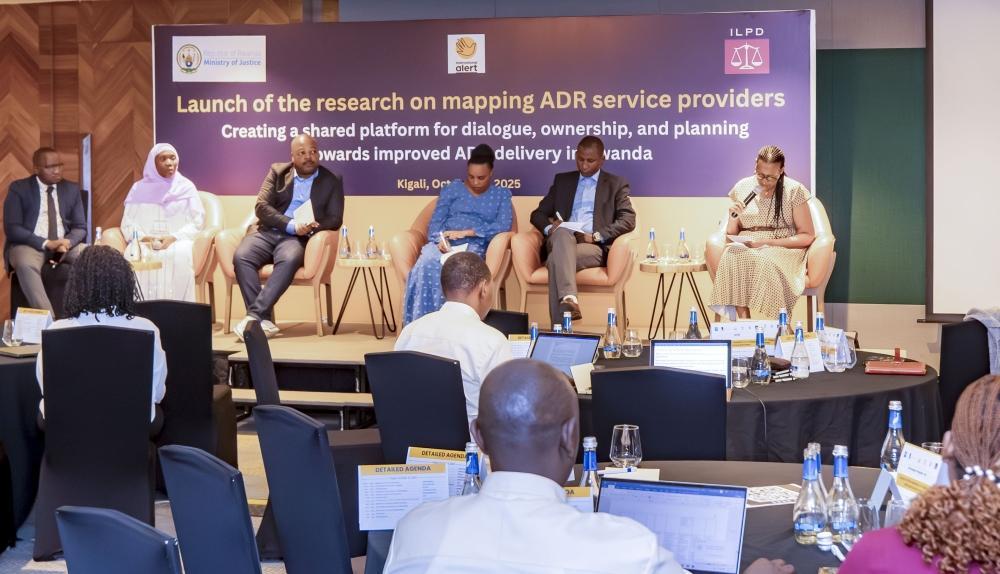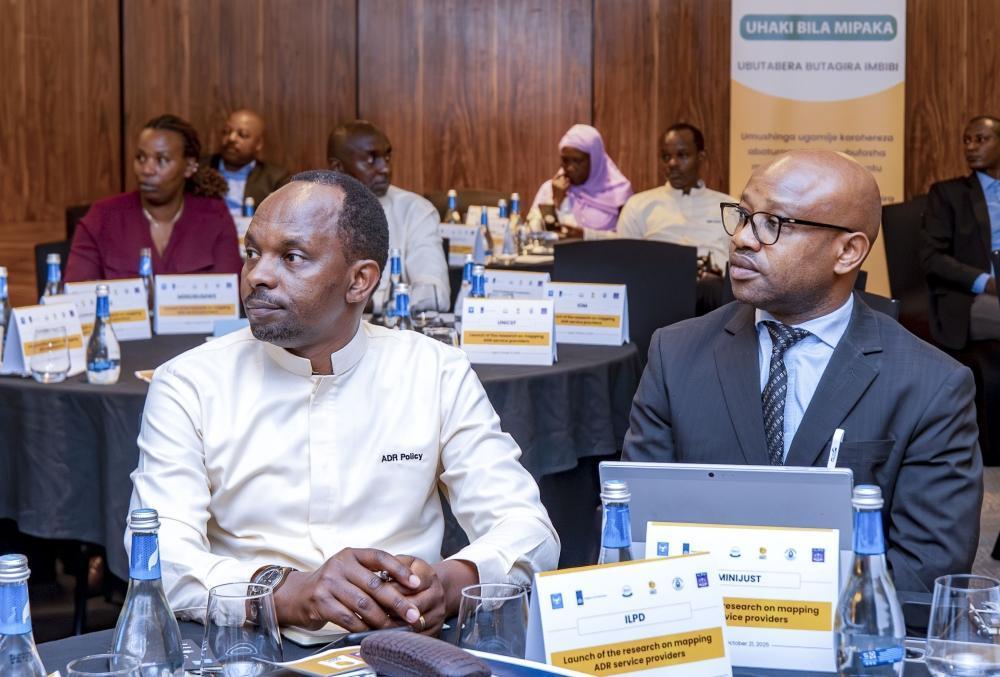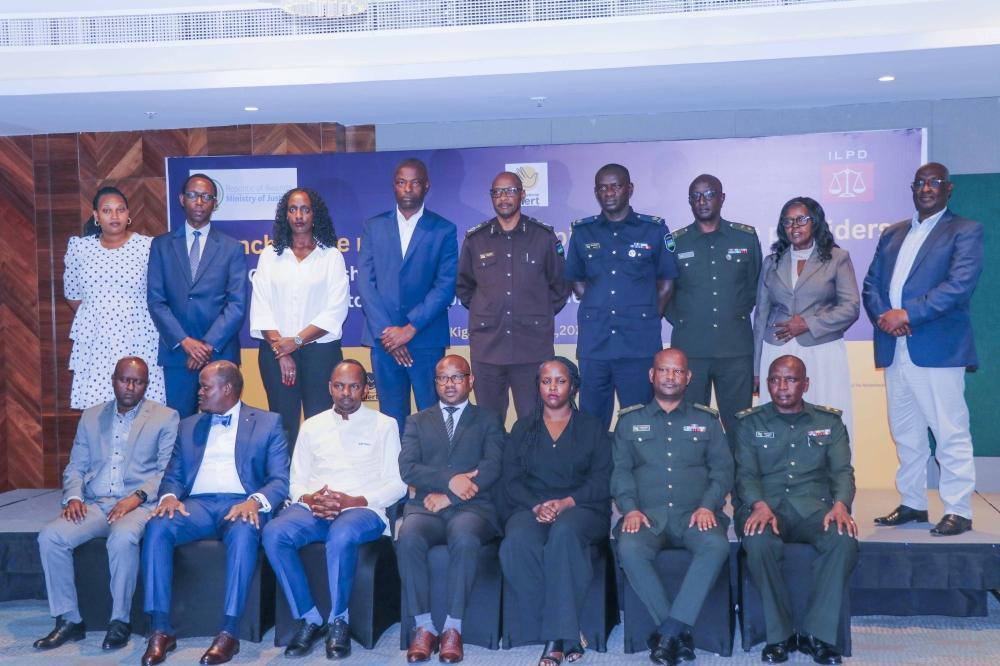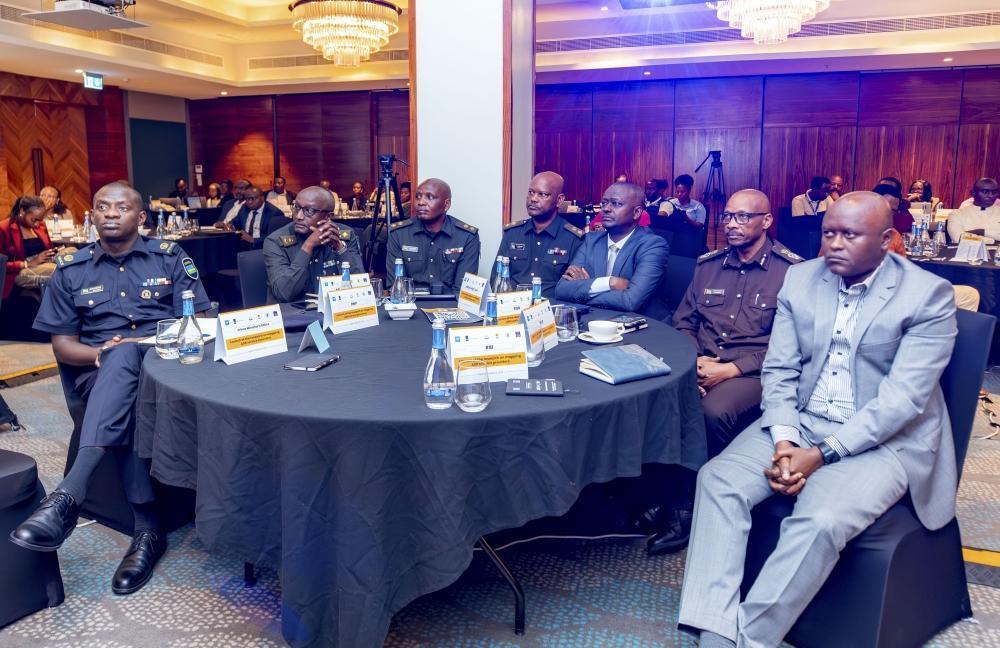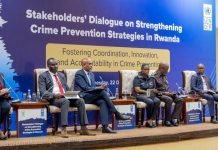Africa-Press – Rwanda. The Institute of Legal Practice and Development (ILPD) has unveiled Rwanda’s first-ever national research on the Mapping and Profiling of Alternative Dispute Resolution (ADR) Service Providers.
The findings are aimed at informing policy reforms, strengthen coordination among actors, and enhance the implementation of the country’s ADR framework.
Rwanda is continuing to encourage the use of ADR, and currently, many mechanisms are in place to give people the opportunity to solve their disputes through ADR rather litigation. In this article, The New Times presents some key points in the new research.
1. Mediation emerges as the most common ADR mechanism
Mediation, defined as a voluntary and confidential process in which a neutral third party helps disputing parties reach a mutually acceptable solution, has emerged as Rwanda’s most common ADR mechanism.
According to the study, mediation accounts for 39.4 percent of all ADR cases, followed by conciliation (30.5 percent), negotiation (26 percent), and arbitration (4.1 percent).
Delegates follow a panel discussion as ILPD unveiled Rwanda’s first-ever national research on the Mapping and Profiling of Alternative Dispute Resolution (ADR) Service Providers.
Civil disputes represented the majority of ADR cases (70.9 percent), of which 92.9 percent were family-related, followed by labour (14.1percent), commercial (8.6 percent), criminal (3.8 percent), and administrative (6.4 percent) matters.
Data from the ADR Centre shows that 11,317 cases have been resolved through mediation between 2017 and October 17.
2. Who provides ADR services, and where are they located?
The nationwide study covered all 30 districts, providing the first comprehensive overview of Rwanda’s ADR ecosystem. It identified both state and non-state actors, their areas of specialisation, and the mechanisms of collaboration.
Offcials pose for a photo as ILPD unveil Rwanda’s first-ever national research on the Mapping and Profiling of Alternative Dispute Resolution (ADR) Service Providers. Courtesy
State providers include Abunzi committees, MAJ (Access to Justice Bureaus), local leaders, labour inspectors, courts (through mediation), NPPA/RIB (via plea-bargaining), and the Office of the Ombudsman.
Non-state providers comprise 60 NGOs and community-based organisations, seven university legal aid clinics, professional bodies, faith-based organisations, 522 accredited mediators, and 2,720 religious denominations engaged in dispute resolution.
The study revealed that ADR activities are concentrated in Kigali (66.1 percent), followed by the Southern Province (16.9 percent). The Northern Province recorded the lowest presence, at 3.4 percent.
3. Why the mapping matters
The Permanent Secretary at the Ministry of Justice, Theophile Mbonera, emphasized the significance of the research in fostering coordination and collaboration among ADR actors.
“Alternative Dispute Resolution mechanisms play a vital role in enhancing access to justice and promoting peaceful conflict resolution outside formal courts,” he said.
“This research gives us a clear picture of who the ADR service providers are, where they operate, and how they can better collaborate to deliver justice.”
Mbonera noted that since the adoption of the National ADR Policy in 2022, Rwanda has recorded significant progress, reducing court case backlogs from 62 percent in 2023/2024 to 49 percent by the end of 2024/2025, and lowering overcrowding rates in correctional facilities.
“The government of Rwanda is grateful for the contributions of all actors and development partners in implementing the ADR Policy,” he added. “The results are tangible, but more effort is needed to achieve a justice system where disputes are primarily resolved amicably.”
4. 70 percent of ADR cases are civil
The report shows that the majority of cases resolved outside of courts are civil matters, accounting for 70.9 percent of all ADR cases in the past three years.
Among these, 92.9 are family-related, covering issues such as succession, alimony, property disputes, paternity, and land boundaries.
Labour disputes with 14.1percent mainly involve unfair dismissal and non-payment of dues, while commercial cases(8.6 percent) stem from contractual disagreements and small business conflicts.
In addition, 3.8 percent are criminal cases, which are primarily handled through plea bargaining, whereas administrative cases, 6.4 percent, relate to expropriation, delayed payments, and land ownership disputes involving the state.
5. Challenges and recommendations
According to Yves Sezibera, Vice-Rector in charge of Academic and Research Affairs at ILPD, the study aimed to identify who provides ADR services, how citizens access them, and what types of disputes they address.
He highlighted several challenges, including the limited presence of ADR mechanisms in rural areas, fragmented legal frameworks, insufficient coordination among providers, and a persistent “litigation mindset” among the population.
Key recommendations include increasing government funding for ADR programs within the justice sector budget, supporting non-state ADR initiatives through modest subsidies and logistical aid, encouraging private sector contributions as part of corporate social responsibility, and developing fee-sharing models with waivers for indigent clients.
“A formal referral system should be established among ADR service providers to prevent duplication, promote joint planning, and foster shared learning through the ADR Centre,” Sezibera said.
He also emphasized the need for standardised ADR training, specialization in key dispute areas (family, land, commercial, and labour), and continuous professional development through mentorship and refresher courses.
Additional recommendations include enacting a comprehensive ADR law consolidating mediation, arbitration, conciliation, and restorative justice mechanisms, while integrating home-grown solutions and setting clear enforcement and accreditation procedures.
For More News And Analysis About Rwanda Follow Africa-Press

